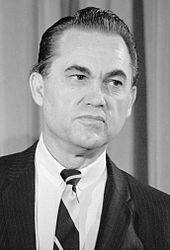Populism
Populism is a political ideology that holds that virtuous citizens are mistreated by a small circle of elites, who can be overthrown if the people recognize the danger and work together. Populism depicts elites as trampling on the rights, values, and voice of the legitimate people
Populism - Wikipedia
Populist movements are found in many democratic nations.Cas Mudde says, "Many observers have noted that populism is inherent to representative democracy; after all, do populists not juxtapose 'the pure people' against 'the corrupt elite'?

Populism is a political ideology that holds that virtuous citizens are mistreated by a small circle of elites, who can be overthrown if the people recognize the danger and work together. Populism depicts elites as trampling on the rights, values, and voice of the legitimate people
Populism - Wikipedia
Populist movements are found in many democratic nations.Cas Mudde says, "Many observers have noted that populism is inherent to representative democracy; after all, do populists not juxtapose 'the pure people' against 'the corrupt elite'?



 .........
.........